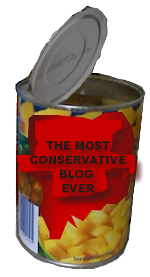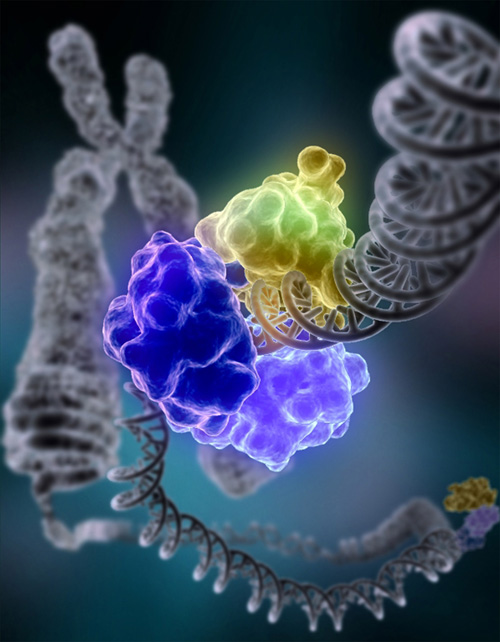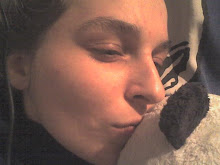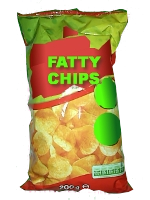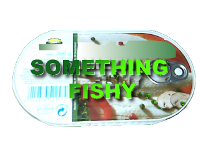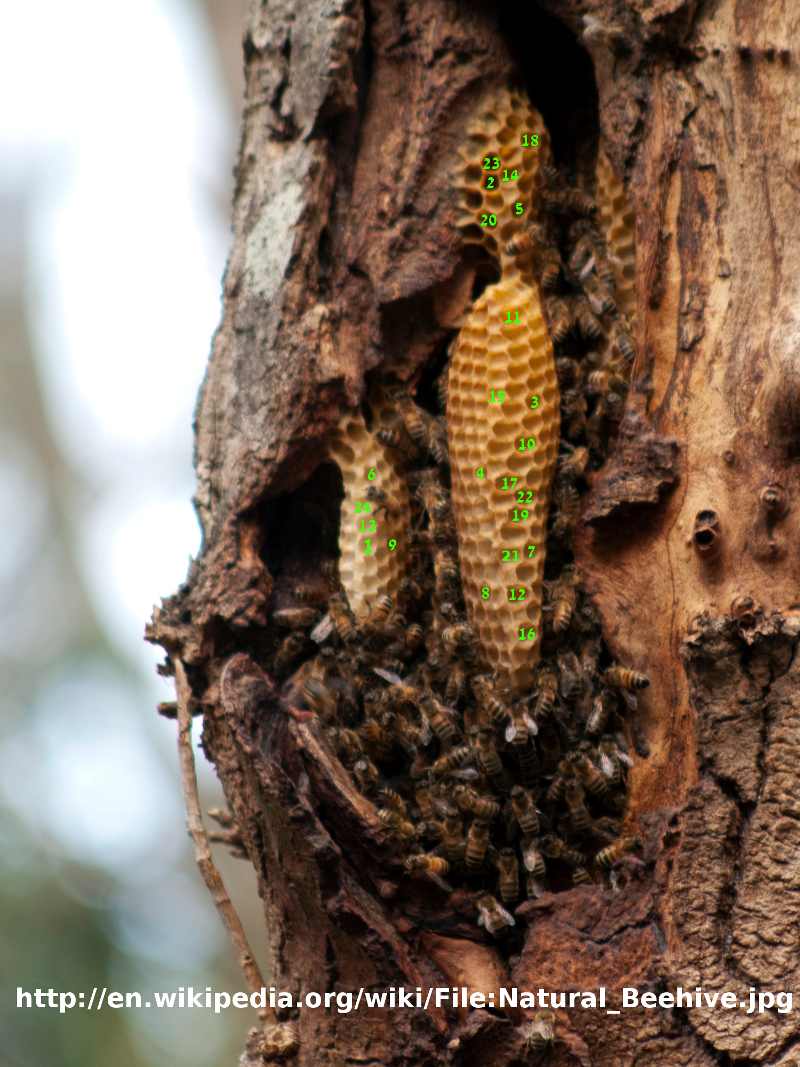
Monday, November 29, 2010
Sunday, November 28, 2010
Saturday, November 27, 2010
Friday, November 26, 2010
Thursday, November 25, 2010
Wednesday, November 24, 2010
Tuesday, November 23, 2010
Monday, November 22, 2010
Sunday, November 21, 2010
Saturday, November 20, 2010
Friday, November 19, 2010
lucifer
[...]Lucifer is a Latin word (from the words lucem ferre), literally meaning "light-bearer", which in that language is used as a name for the dawn appearance of the planet Venus, heralding daylight. Use of the word in this sense is uncommon in English, in which "Day Star" or "Morning Star" are more common expressions.[...]
Thursday, November 18, 2010
Wednesday, November 17, 2010
mutation vs repair
[...]
Harmful mutations
Changes in DNA caused by mutation can cause errors in protein sequence, creating partially or completely non-functional proteins. To function correctly, each cell depends on thousands of proteins to function in the right places at the right times. When a mutation alters a protein that plays a critical role in the body, a medical condition can result. A condition caused by mutations in one or more genes is called a genetic disorder. Some mutations alter a gene's DNA base sequence but do not change the function of the protein made by the gene. Studies of the fly Drosophila melanogaster suggest that if a mutation does change a protein, this will probably be harmful, with about 70 percent of these mutations having damaging effects, and the remainder being either neutral or weakly beneficial.[35] However, studies in yeast have shown that only 7% of mutations that are not in genes are harmful.[36]
If a mutation is present in a germ cell, it can give rise to offspring that carries the mutation in all of its cells. This is the case in hereditary diseases. On the other hand, a mutation may occur in a somatic cell of an organism. Such mutations will be present in all descendants of this cell within the same organism, and certain mutations can cause the cell to become malignant, and thus cause cancer.[37]
Often, gene mutations that could cause a genetic disorder are repaired by the DNA repair system of the cell. Each cell has a number of pathways through which enzymes recognize and repair mistakes in DNA. Because DNA can be damaged or mutated in many ways, the process of DNA repair is an important way in which the body protects itself from disease.[...]
http://en.wikipedia.org/wiki/Mutation
[...]Sources of damage
DNA damage can be subdivided into two main types:
1. endogenous damage such as attack by reactive oxygen species produced from normal metabolic byproducts (spontaneous mutation), especially the process of oxidative deamination;
1. also includes replication errors
2. exogenous damage caused by external agents such as
1. ultraviolet [UV 200-300nm] radiation from the sun
2. other radiation frequencies, including x-rays and gamma rays
3. hydrolysis or thermal disruption
4. certain plant toxins
5. human-made mutagenic chemicals, especially aromatic compounds that act as DNA intercalating agents
6. cancer chemotherapy and radiotherapy
7. viruses [5]
The replication of damaged DNA before cell division can lead to the incorporation of wrong bases opposite damaged ones. Daughter cells that inherit these wrong bases carry mutations from which the original DNA sequence is unrecoverable (except in the rare case of a back mutation, for example, through gene conversion).[...]
http://en.wikipedia.org/wiki/DNA_repair
Tuesday, November 16, 2010
Monday, November 15, 2010
Sunday, November 14, 2010
Saturday, November 13, 2010
Friday, November 12, 2010
Thursday, November 11, 2010
Wednesday, November 10, 2010
Tuesday, November 9, 2010
DBT - the brand-new lifestyle or how to become a master of the new world order
The four modules
[edit] Mindfulness
[edit] Skills within the Mindfulness module
[edit] The "What" Skills
- Observe
- This is used to non-judgmentally observe one’s environment within or outside oneself. It is helpful in understanding what is going on in any given situation.
- Describe
- This is used to express what one has observed with the observe skill. It is to be used without judgmental statements. This helps with letting others know what you have observed.
- Participate
- This is used to become fully involved in the activity that one is doing. To be able to fully focus on what one is doing.
[edit] The "How" Skills
- Non-Judgmentally
- This is the action of describing the facts, and not thinking about what’s “good” or “bad”, “fair”, or “unfair.” These are judgments because this is how you feel about the situation but isn’t a factual description. Being non-judgmental helps to get your point across in an effective manner without adding a judgment that someone else might disagree with.
- One-Mindfully
- This is used to focus on one thing. One-mindfully is helpful in keeping your mind from straying into emotion mind by a lack of focus.
- Effectively
- This is simply doing what works. It is a very broad-ranged skill and can be applied to any other skill to aid in being successful with said skill.[8]
[edit] Distress Tolerance
Many current approaches to mental health treatment focus on changing distressing events and circumstances. They have paid little attention to accepting, finding meaning for, and tolerating distress. This task has generally been tackled by psychodynamic, psychoanalytic, gestalt, or narrative therapies, along with religious and spiritual communities and leaders. Dialectical behavior therapy emphasizes learning to bear pain skillfully.
Distress tolerance skills constitute a natural development from DBT mindfulness skills. They have to do with the ability to accept, in a non-evaluative and nonjudgmental fashion, both oneself and the current situation. Although this is a nonjudgmental stance, this does not mean that it is one of approval or resignation. The goal is to become capable of calmly recognizing negative situations and their impact, rather than becoming overwhelmed or hiding from them. This allows individuals to make wise decisions about whether and how to take action, rather than falling into the intense, desperate, and often destructive emotional reactions that are part of borderline personality disorder.
[edit] Skills within the Distress tolerance module
[8]
- Distract with ACCEPTS
- This is a skill used to distract oneself temporarily from unpleasant emotions. The acronym breaks into:
- Activities: Use positive activities that you enjoy.
- Contribute: Help out others or your community.
- Comparisons: Compare yourself either to people that are less fortunate or to how you used to be when you were in a worse state.
- Emotions (other): cause yourself to feel something different by provoking your sense of humor or happiness with corresponding activities.
- Push away: Put your situation on the back-burner for a while. Put something else temporarily first in your mind.
- Thoughts (other): Force your mind to think about something else.
- Sensations (other) – Do something that has an intense feeling other than what you are feeling, like a cold shower or a spicy candy.
- Self Soothe
- This is a skill in which one behaves in a comforting, nurturing, kind, and gentle way to oneself. You use it by doing something that is soothing to you. It is used in moments of distress or agitation.
- IMPROVE the Moment
- This skill is used in moments of distress to help one relax. The acronym stands for:
- Imagery: Imagine relaxing scenes, things going well, or other things that please you.
- Meaning: Find some purpose or meaning in what you are feeling.
- Prayer: Either pray to whomever you worship or if not religious, chant a personal mantra.
- Relaxation: Relax your muscles, breathe deeply; use with Self Soothing.
- One thing in the moment: Focus your entire attention on what you are doing right now. Keep yourself in the present.
- Vacation (brief): Take a break from it all for a short period of time.
- Encouragement: Cheer-lead yourself. Tell yourself you can make it through this.
- Pros and Cons
- Think about the positive and negative things about not tolerating distress.
- Radical Acceptance
- Letting go of fighting reality. Accept your situation for what it is.
- Turning the Mind
- Turn your mind towards an acceptance stance. It should be used with Radical Acceptance.
- Willingness vs. Willfulness
- Being willing and open to do what is effective. Let go of a willful stance which goes against acceptance. Keep your eye on the goal in front of you.
[edit] Emotion Regulation
Individuals with borderline personality disorder and suicidal individuals are frequently emotionally intense and labile. They can be angry, intensely frustrated, depressed, or anxious. This suggests that these clients might benefit from help in learning to regulate their emotions. Dialectical behavior therapy skills for emotion regulation include:[9][10]
- Identifying and labeling emotions
- Identifying obstacles to changing emotions
- Reducing vulnerability to emotion mind
- Increasing positive emotional events
- Increasing mindfulness to current emotions
- Taking opposite action
- Applying distress tolerance techniques
[edit] Skills within the Emotion regulation module
[8]
- Story of Emotion
- Used to understand what kind of emotion one is feeling. To use this, list the following:
- Prompting event
- Interpretation of the event
- Body sensations
- Body language
- Action urge
- Action
- Emotion name, based on previous items on list.
- PLEASE MASTER
- Having ineffective health habits can make one more vulnerable to emotion mind. This skill is used to maintain a healthy body so one is more likely to have healthy emotions. It is an acronym that stands for the following:
- PhysicaL Illness (treat): If you are sick or injured, get proper treatment for it.
- Eating (balanced): Make sure you eat a proper healthy diet, and eat in moderation.
- Avoid Mood-Altering Drugs: Do not take non-prescribed medication or illegal drugs. They are very harmful to your body, and can make your mood unpredictable.
- Sleep (balanced): Do not sleep too much or too little. 8 hours of sleep is recommended per night for the average adult.
- Exercise: Make sure you get an effective amount of exercise as this will both improve body image, and release endorphins (making you happier).
- MASTERy (build): Try to do one thing a day to help build competence and control.
- Opposite Action
- This skill is used when you have an unjustified emotion, one that doesn’t belong in the situation at hand. You use it by doing the opposite of your urges in the moment. It is a tool to bring you out of an unwanted or unjustified emotion by replacing it with the emotion that is opposite.
- Problem Solving
- This is used to solve a problem when your emotion is justified. It is used in combination with other skills.
- Letting Go of Emotional Suffering
- Observe and experience your emotion, accept it, then let it go.
[edit] Interpersonal Effectiveness
Interpersonal response patterns taught in DBT skills training are very similar to those taught in many assertiveness and interpersonal problem-solving classes. They include effective strategies for asking for what one needs, saying no, and coping with interpersonal conflict.
Individuals with borderline personality disorder frequently possess good interpersonal skills in a general sense. The problems arise in the application of these skills to specific situations. An individual may be able to describe effective behavioral sequences when discussing another person encountering a problematic situation, but may be completely incapable of generating or carrying out a similar behavioral sequence when analyzing his or her own situation.
The interpersonal effectiveness module focuses on situations where the objective is to change something (e.g., requesting that someone do something) or to resist changes someone else is trying to make (e.g., saying no). The skills taught are intended to maximize the chances that a person’s goals in a specific situation will be met, while at the same time not damaging either the relationship or the person’s self-respect.
[edit] Skills within the Interpersonal effectiveness module
[8]
- DEARMAN - to get something
- Acronym for the skillset used to aid you in getting what you want when you ask:
- Describe your situation.
- Express why this is an issue and how you feel about it.
- Assert yourself by asking clearly for what you want.
- Reinforce your position by offering a positive consequence if you were to get what you want.
- Mindful of the situation by focusing on what you want and ignore distractions.
- Appear Confident even if you don’t feel confident.
- Negotiate with a hesitant person and come to a comfortable compromise on your request.
- GIVE - giving something
- This is a skill that can aid you with maintaining your relationships, whether they are friendships, coworkers, family, romantic, etc. It is to be used in conversations. It is another acronym that stands for the following:
- Gentle: Use appropriate language, no verbal or physical attacks, no put downs, avoid sarcasm unless you are sure the person is alright with it, and be courteous and non-judgmental.
- Interested: When the person you are speaking to is talking about something, act interested in what they are saying. Maintain eye contact, ask questions, etc. Do not use your cell phone while having a conversation with another person!
- Validate: Show that you understand a person’s situation and sympathize with them. Validation can be shown through words, body language and/or facial expressions.
- Easy Manner: Be calm and comfortable during conversation, use humor, smile.
- FAST - keeping self respect
- This is a skill to aid you in maintaining your self-respect. It is to be used in combination with the other Interpersonal Effectiveness skills. It is another acronym, and it stands for the following:
- Fair: Be fair to both yourself and the other person.
- Apologies (few): Don’t apologize more than once for what you have done ineffectively, or apologize for something which was not ineffective.
- Stick to Your Values: Stay true to what you believe in and stand by it. Don’t allow others to get you to do things against your values.
http://en.wikipedia.org/wiki/Dialectical_behavior_therapy
- Truthful: Don’t lie. Lying can only pile up and damage relationships and your self-respect.
Monday, November 8, 2010
Sunday, November 7, 2010
Permaculture doesn't mean you throw out a bear of his cave to store your finest wine supply and then shoot him because he got mad at you!
Saturday, November 6, 2010
Fuck religion, let's bring some archee-tecting skills on the slums out there!
Yes we can build a little palais for everyone!
http://en.wikipedia.org/wiki/Slum
English: % of urban population living in slums (data from 2005 - source: UN-HABITAT - http://www.unhabitat.org/stats/Default.aspx)
English: % of urban population living in slums (data from 2005 - source: UN-HABITAT - http://www.unhabitat.org/stats/Default.aspx)
Português: % da população urbana vivendo em favelas (dados de 2005 - fonte: UN-HABITAT - http://www.unhabitat.org/stats/Default.aspx)
0-10%
10-20%
20-30%
30-40%
40-50%
50-60%
60-70%
70-80%
80-90%
90-100%
No data available
Friday, November 5, 2010
Thursday, November 4, 2010
dietary energy availability per person per day - now and then
In 1961, world average was 2,253.9 kcal/person/day.
no data
<1600
1600-1800
1800-2000
2000-2200
2200-2400
2400-2600
2600-2800
2800-3000
3000-3200
3200-3400
3400-3600
>3600
Note:
http://en.wikipedia.org/wiki/Dietary_energy_supply
